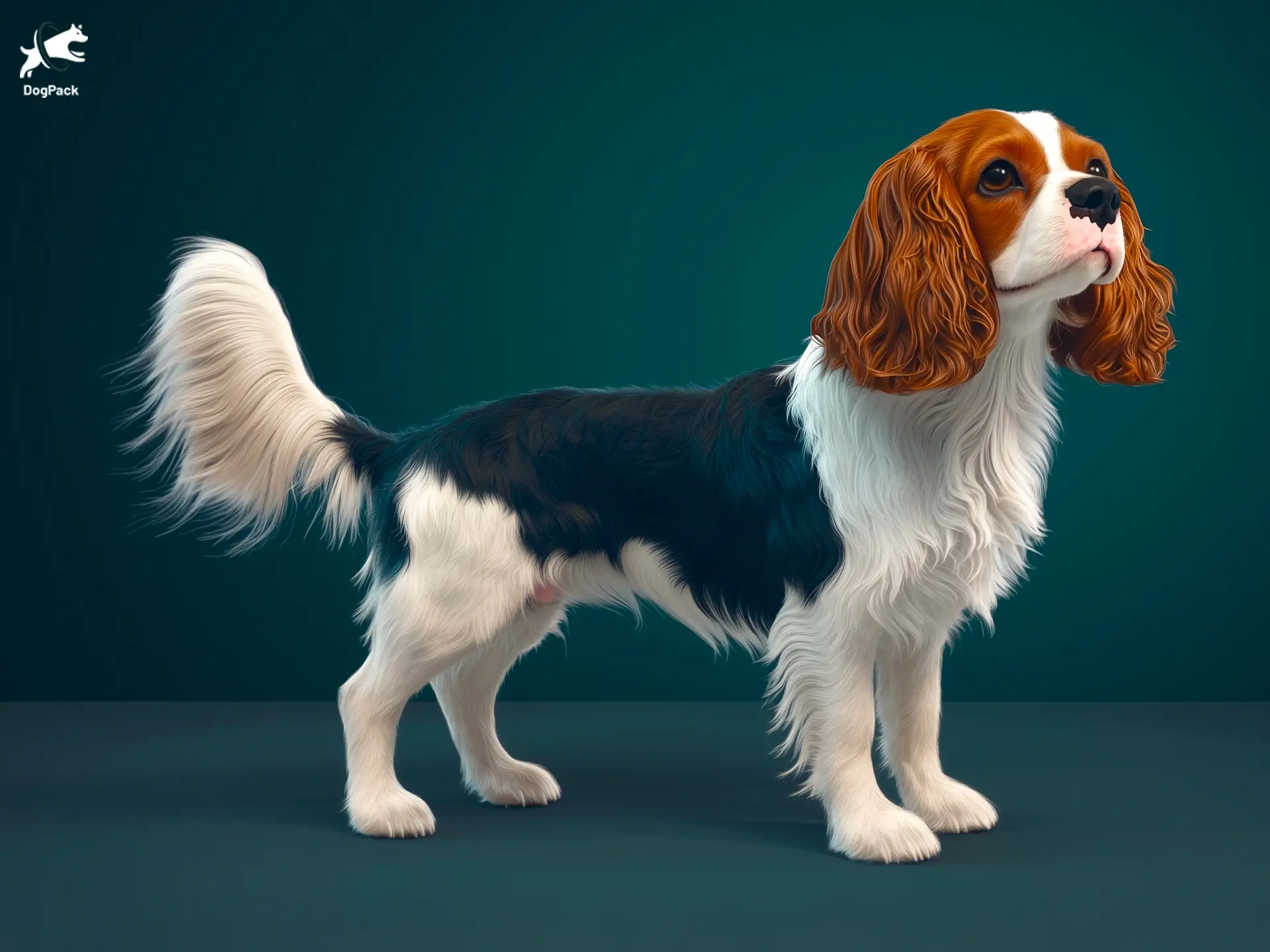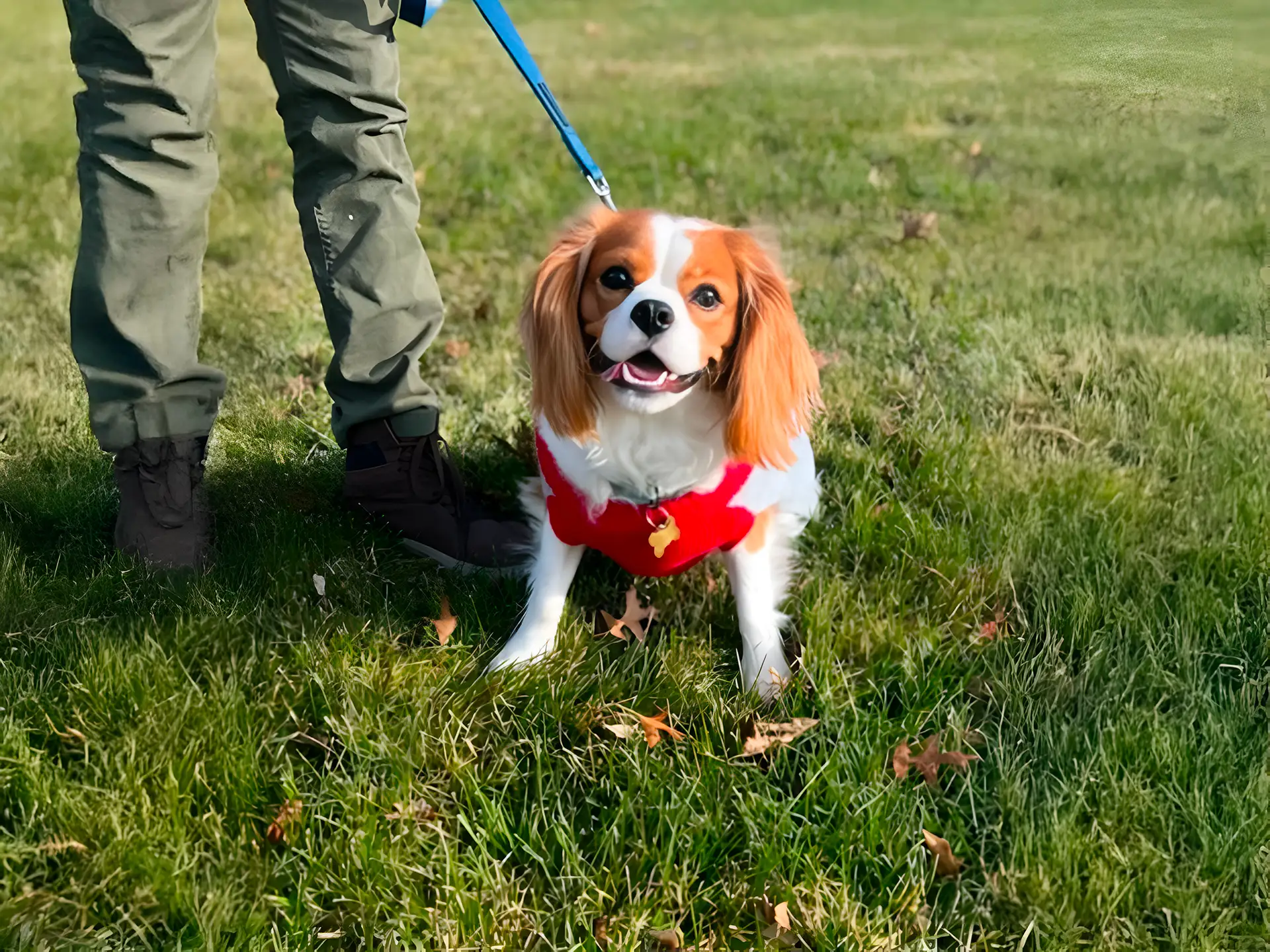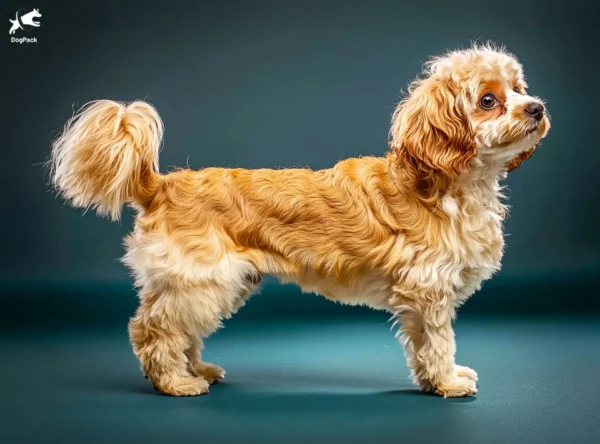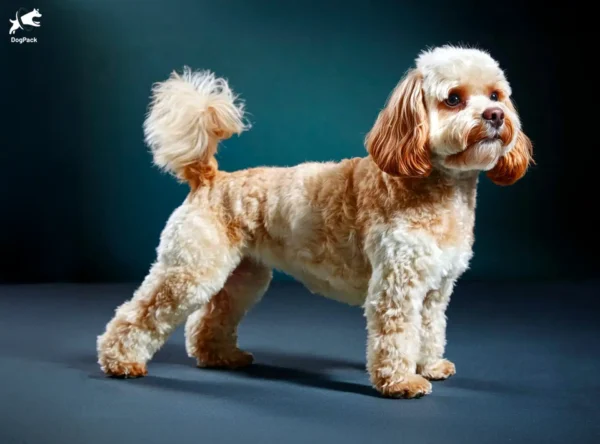Cockalier Dog Breed Info & Overview
The Cockalier, a delightful mix of the playful Cocker Spaniel and the gentle Cavalier King Charles Spaniel, brings together the best of both breeds. Known for their affectionate nature, friendly disposition, and compact size, Cockaliers make wonderful companions for families, singles, and seniors alike. With their adaptable and loving personalities, these hybrids fit effortlessly into a variety of lifestyles, bringing joy and warmth to any home.
Characteristics
Pictures
Breed History
The Cockalier is a relatively new hybrid, emerging in the United States as breeders sought to combine the best qualities of the Cocker Spaniel and the Cavalier King Charles Spaniel. This crossbreed inherits a rich history from both parent breeds, each with roots in hunting and companionship. The Cockalier brings together centuries of lineage into one affectionate package.
While the Cocker Spaniel was originally bred for hunting small game, the Cavalier King Charles Spaniel was favored by royalty for its gentle demeanor. The Cockalier inherits the Cocker’s agility and the Cavalier’s lapdog tendencies, creating a versatile companion. This blend has made the Cockalier increasingly popular among dog enthusiasts seeking a well-rounded pet.
Despite its growing popularity, the Cockalier is not recognized by major kennel clubs due to its hybrid status. However, this doesn’t deter fans who appreciate the breed’s unique combination of traits. The Cockalier continues to win hearts with its endearing personality and adaptable nature.
Temperament, Personality
Cockaliers are known for their affectionate and friendly personalities. They thrive on human interaction and are happiest when included in family activities. Their playful nature makes them great companions for children, and they often form strong bonds with all family members.
This breed is generally sociable with other pets, especially when properly socialized from a young age. Cockaliers enjoy meeting new people and animals, making them a delight during walks and outings. Their gentle disposition means they’re less likely to exhibit aggressive behaviors.
However, Cockaliers can be sensitive and may not respond well to harsh training methods. Positive reinforcement and gentle guidance are key to nurturing their best traits. Their eagerness to please makes training a rewarding experience for both owner and pet.
Physical Characteristics
The Cockalier is a small to medium-sized dog, typically weighing between 10–28 pounds (5–13 kg) and standing 12–15 inches (30–38 cm) tall. They often inherit the silky coat of the Cavalier King Charles Spaniel, combined with the wavy texture of the Cocker Spaniel.
Their coat colors can vary widely, including shades of black, tan, red, and white, sometimes in combination. Cockaliers often have expressive eyes and long, floppy ears that add to their charming appearance. Their compact size makes them suitable for apartment living while still being sturdy enough for outdoor adventures.
Overall, the Cockalier’s physical traits are a harmonious blend of its parent breeds. Their endearing looks are matched by a sturdy build, making them both adorable and resilient companions.
Health Issues
Cockaliers are generally healthy but can be prone to certain genetic health issues inherited from their parent breeds. Common concerns include hip dysplasia, ear infections due to their floppy ears, and heart conditions like mitral valve disease.
Regular veterinary check-ups are crucial to monitor and maintain the Cockalier’s health. Keeping their ears clean can help prevent infections, a common issue due to limited airflow. Additionally, responsible breeding practices can reduce the risk of hereditary conditions.
It’s advisable for potential owners to inquire about the health history of the puppy’s parents. Knowledgeable breeders will often provide health clearances to assure that the Cockalier puppy has the best start in life.
Grooming Needs
Cockaliers have moderate grooming needs, thanks to their medium-length, silky coats. Regular brushing—about two to three times a week—helps prevent matting and keeps their coat looking its best. During shedding seasons, more frequent brushing may be necessary.
Bathing should be done as needed, typically once a month or when they get particularly dirty. Their long ears require special attention; regular cleaning helps prevent ear infections. Nail trimming and dental hygiene are also important parts of their grooming routine.
Some owners opt for professional grooming to keep their Cockalier’s coat trimmed and neat. Whether you choose to groom at home or seek professional help, maintaining a consistent grooming schedule is key to your Cockalier’s comfort and health.
Exercise Requirements
While Cockaliers enjoy playtime, their exercise needs are moderate. A daily walk of 30–60 minutes, combined with some play sessions, usually suffices to keep them happy and healthy. They enjoy activities like fetch or gentle hikes, adapting well to their owner’s activity level.
Mental stimulation is equally important. Puzzle toys and obedience training can keep their intelligent minds engaged. Cockaliers are known to excel in agility courses, which can be a fun way to bond and exercise together.
Despite their moderate energy levels, they shouldn’t be left idle for too long. Regular activity helps prevent boredom-related behaviors like chewing or excessive barking. Tailoring exercise routines to their needs ensures a well-balanced Cockalier.
Training Tips
Cockaliers are intelligent and eager to please, making training a relatively smooth process. Positive reinforcement techniques, such as treats and praise, yield the best results. Consistency is key; establishing clear commands and routines helps them understand expectations.
Early socialization is important to develop their confidence around new people and environments. Puppy classes can provide structured learning and social opportunities. Patience and gentle guidance go a long way, as Cockaliers may become timid if handled harshly.
House training is usually straightforward, but may require diligence in the early stages. Keeping a regular schedule and rewarding good behavior encourages quick learning. Overall, training a Cockalier can be a rewarding experience that strengthens your bond.
Nutrition, Diet
Feeding a Cockalier requires attention to their specific nutritional needs. A diet rich in high-quality protein supports their energy levels and muscle maintenance. Portion sizes typically range from 1 to 1.5 cups of dry kibble per day, divided into two meals.
It’s important to monitor their weight, as Cockaliers can be prone to obesity if overfed. Choosing a diet formulated for small to medium breeds ensures they receive balanced nutrients. Omega-3 fatty acids can benefit their coat health, reflecting the needs inherited from their parent breeds.
Consulting with a veterinarian can help tailor a diet plan specific to your Cockalier’s age, weight, and activity level. Avoiding table scraps and excessive treats keeps their diet consistent and healthy.
Adoption, Breeders
When considering adding a Cockalier to your family, it’s important to choose reputable sources. Adoption is a wonderful option; organizations like Petfinder often have Cockaliers in need of loving homes. Rescue groups specific to Cocker Spaniels or Cavalier King Charles Spaniels may also have crossbreeds available.
If opting to buy from a breeder, ensure they practice responsible breeding. Reputable breeders will provide health clearances and allow you to meet the puppy’s parents. The American Cockalier Club offers resources for finding trusted breeders.
Avoid purchasing from puppy mills or pet stores where breeding practices are questionable. Investing time in finding a responsible source contributes to the health and happiness of your future Cockalier.
Family Pet?
The Cockalier makes an excellent family pet due to its affectionate and gentle nature. They are known to be great with children, often forming strong bonds and enjoying playtime. Their size is manageable for kids, and their temperament is typically patient and tolerant.
With proper socialization, Cockaliers get along well with other pets, including dogs and cats. Their friendly disposition means they’re less likely to exhibit territorial behaviors. Supervised interactions during the initial introduction period help ensure harmony.
Their adaptable nature also suits them to various living environments, from apartments to larger homes. The Cockalier’s loving personality makes them a cherished addition to many families.
Right For You?
If you’re seeking a loving, adaptable, and manageable-sized companion, the Cockalier might be the perfect match. They fit well with individuals, families, seniors, and even first-time dog owners. Their moderate exercise needs and friendly nature make them suitable for various lifestyles.
However, they do require attention and may not thrive in homes where they’re left alone for extended periods. Their grooming needs, while moderate, require regular upkeep. Considering these factors ensures that both you and your Cockalier will enjoy a happy life together.
Ultimately, the Cockalier offers a blend of affection and playfulness that appeals to many. Assessing your ability to meet their needs will help you decide if this charming breed is right for you.
Conclusion
The Cockalier combines the best qualities of the Cocker Spaniel and Cavalier King Charles Spaniel into one delightful package. Their affectionate nature, manageable size, and adaptability make them an excellent choice for a wide range of owners. If you’re looking for a loving companion that fits seamlessly into family life or solo living, the Cockalier could be your ideal match.
FAQs
-
How much exercise does a Cockalier need daily?
Cockaliers typically need around 45 minutes to an hour of exercise daily. This can include a mix of walks, playtime, and mental stimulation to keep them happy and prevent boredom-related behaviors.
-
What type of grooming does a Cockalier require?
Cockaliers need regular grooming, including weekly brushing to manage shedding and prevent matting. Occasional professional grooming may help keep their coat tidy, especially if they inherit the longer coat of the Cavalier.
-
Are Cockaliers prone to specific health issues?
Cockaliers may be prone to ear infections due to their floppy ears, so regular ear cleaning is essential. They may also inherit heart or eye conditions common in Cavalier King Charles Spaniels, so routine vet check-ups are recommended.
-
How do Cockaliers handle car travel?
Most Cockaliers enjoy car rides, especially if introduced early. Keeping them secure in a pet carrier or with a seatbelt harness ensures safety and helps reduce travel anxiety, making them great companions on road trips.
-
Do Cockaliers require mental stimulation indoors?
Yes, Cockaliers benefit from mental stimulation through puzzle toys, training sessions, or scent games. These activities satisfy their curiosity and help prevent boredom, especially on days when outdoor exercise is limited.
Breed Ratings
Cockaliers are smart and quick learners, making training a rewarding experience.
Their energetic and playful nature makes them great companions for active families.
Moderate energy levels suit both active and more relaxed lifestyles.
Moderate shedding requires regular grooming to keep their coat healthy.
Low prey drive means they’re less likely to chase smaller animals.
Regular brushing is needed, but overall grooming is manageable.
Eagerness to please and intelligence make them highly trainable.
They prefer company and may not do well when left alone for long periods.
They may bark to alert but are not typically excessive barkers.
Minimal drooling makes them relatively clean companions.
Generally get along well with other dogs, especially when socialized early.
Mostly healthy but watch for breed-specific health issues.














